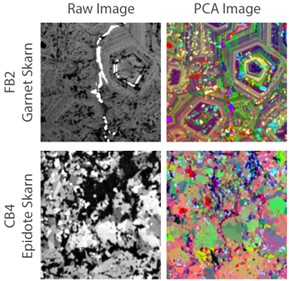 HKU Department of Earth Science
HKU Department of Earth Science
Seminar

Quantifying the mineralogy of Las Bambas porphyry Cu skarn deposits using SWIR and TIR hyperspectral remote sensing
-
Date
August 25, 2022
-
Time
2:00PM - 3:00PM
-
Venue
JL104
-
Speaker
Mr. LEE Kwun Chak Department of Earth Sciences, HKU
Hyperspectral remote sensing has been applied to mineral exploration since the 1980s, including hydrothermally altered skarns. Previous studies have also placed a great emphasis on spectral unmixing, disentangling the spectral mixture into a set of endmembers and a combination of their corresponding abundances, but spectral unmixing depends on the nuances of different algorithms and choice of endmember spectra. Furthermore, the issue of determining mineral abundance is more important than spectral mixtures, in that this issue concerns how minerals can be properly categorized from both pure and mixed pixels. In this study, I evaluate mineral detectability based on a an automated pixel-counting approach. 46 bulk rocks were sampled and then scanned by HySpex, a hyperspectral infrared sensor. Thin sections are also prepared from the bulk rocks which are then scanned using FT-IR microspectroscopy. Thematic maps are then generated from the images which derive the mineral abundances by pixel-counting. The results are then compared with those of the semi-quantitative X-ray diffraction (XRD) analysis to evaluate the performance of the SWIR and TIR sensors. Apart from this, a study on the association of the TIR features and garnet composition, as well as how it could be used to target Cu (Mo) mineralization are covered.
